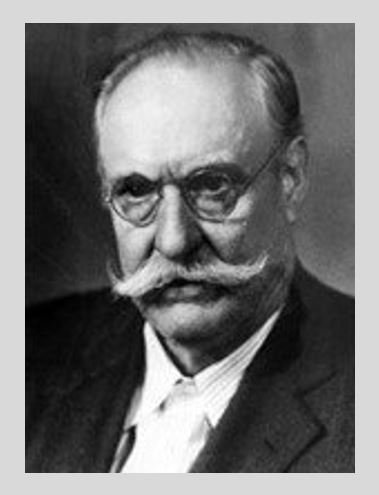Lem Motlow
“Politician, Businessman, Defendant”
In the early 1800s, Tennessee was still mostly wilderness. It was during this time that Agnes Motlow, a widow of a Revolutionary War soldier, settled in Lincoln County with her family. Meanwhile, in nearby Franklin County, Joseph Daniel also made a home for his family. Two generations later, on December 22, 1869, their bloodlines came together when Agnes’s grandson, Felix Motlow, married Joseph’s granddaughter, Finetta “Nettie” Daniel. This marriage would forever link the Motlow and Daniel families in history.
Nettie’s younger brother, Jasper “Jack” Daniel, would go on to create the world-famous Jack Daniel’s Tennessee Whiskey. Jack never married or had children, so the question soon became: who would take over his growing business?
Enter Lemuel Oscar Motlow—known as Lem—born on November 28, 1869, in Moore County, Tennessee, near the small town of Lynchburg. He was the son of Felix and Nettie Motlow. Lem had a close relationship with his Uncle Jack, who brought him into the whiskey business at an early age. Lem had a natural talent for numbers, and by the age of 14, he was already handling the bookkeeping at the distillery.
In 1895, Lem married Clara Reagor. They had two children: a daughter who sadly died shortly after birth in 1896, and a son named John J. Reagor Motlow, born in 1898. Tragedy struck again when Clara died in 1901, leaving Lem to raise their three-year-old son alone.
Two years later, in 1903, Lem married again—this time to Ophelia Verna Evans. Together, they had four children: Robert, Daniel, Clifford, and Mary. Lem’s oldest son, John, would grow up to become president of the Jack Daniel’s Distillery and later joined the board of directors after Brown-Forman bought the company.
In 1907, due to poor health, Jack Daniel handed control of the distillery to Lem and their cousin Dick Daniel. Dick later sold his share to Lem, making Lem the primary owner.
During this time, Tennessee had a long history of pushing back against alcohol, and in 1909, the state passed laws banning the sale of liquor. To fight back, Lem ran for office in 1908, determined to influence the laws being passed. He was elected as a state senator and would go on to serve in both the Tennessee State House and Senate. While he never succeeded in reversing Prohibition, Lem did help pass a law allowing whiskey to be sold in small amounts for medical use.
As Prohibition laws spread, Lem took action to protect his business. He moved inventory and operations to places like St. Louis, Missouri, and Birmingham, Alabama. But in 1920, the 18th Amendment was passed, making alcohol sales illegal across the entire United States.
This hit the Jack Daniel’s Distillery hard. Whiskey barrels were locked away in federally protected warehouses with armed guards. But in 1923, disaster struck. A group of skilled criminals drained 893 barrels of bourbon from one of Lem’s warehouses. Using a hidden 150-foot hose, they siphoned the whiskey into waiting trucks and refilled the barrels with water and vinegar. Investigators suspected Lem was behind the heist and charged him with bootlegging.
Then, on March 17, 1924, Lem made headlines again. After a day in court, he boarded a train back to Tennessee. Drunk and angry, Lem got into an argument with Ed Wallis, a Black sleeping car porter, after being asked to show a ticket. When the train conductor, Clarence Pullis, stepped in to calm things down, Lem pulled out a gun and shot him. Pullis died two days later, and Lem was charged with murder.
With his wealth and influence, Lem hired top lawyers. They turned the case against the porter, using the racist attitudes of the time to their advantage. Though Ed Wallis was the key witness, the all-white, all-male jury found Lem not guilty. He walked free, but the scandal cast a shadow over his legacy.
Despite everything, Lem didn’t give up on the distillery. When Tennessee repealed its Prohibition laws in 1937, he reopened Jack Daniel’s in Lynchburg the next year. In 1939, Lem introduced “Lem Motlow’s Tennessee Sour Mash Whiskey,” a limited and now highly collectible product.
In 1941, Lem suffered a stroke but continued working from a wheelchair for six more years. He died on September 1, 1947, at the age of 77, and was buried in Lynchburg Cemetery.
The distillery passed to his sons—Reagor, Robert, Daniel, and Clifford—who carried on the business, sticking to the high standards set by both Jack and Lem. Reagor, the eldest, took over as president.
A Fun Footnote:
Lem Motlow had a distant cousin named Asa Griggs Candler. They shared the same great-great-grandparents, Obediah Hooper and Massilva Marvula Brooks. While Lem became famous through Jack Daniel’s, Asa made his mark by buying the rights to a syrup formula and founding Coca-Cola. Some might say a “Jack and Coke” was meant to be!




